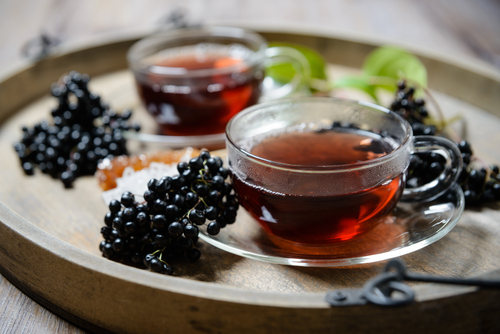Tumeric and 9 Other Botanical Supplements Can Boost Your Health
Posted on Categories Discover Magazine

Botanical supplements are made from plants, including the root, leaf, flower, stem, and seed. Often used interchangeably with “herbal supplements,” herbs are actually a subset of botanicals.
Archaeological evidence points to humans using plants for health-boosting potential as far back as 60,000 years ago — with written records by the Sumerians dating to more than 3500 years ago. Get to know some of these popular botanical supplements and how they are used today.
1. Ashwagandha
(Credit: Eskymaks/Shutterstock)
Ashwagandha has been used for thousands of years as part of traditional Indian medicine, known as Ayurveda. This botanical is used to reduce stress and anxiety and diminish fatigue.
Although usually well tolerated, ashwagandha can cause digestive issues when taken in large amounts. Pregnant or breastfeeding women should avoid it.
2. Black Cohosh
(Credit: marilyn barbone/Shutterstock)
As a phytoestrogen, black cohosh produces effects similar to those of estrogen. Therefore, it’s useful for treating symptoms of menopause, such as night sweats, hot flashes, anxiety, and heart palpitations. Emerging research also suggests that black cohosh provides relief for arthritis and other musculoskeletal pain.
What are the Side Effects of Black Cohosh?
The most common side effects are rash or headache. Black cohosh should be avoided by people who have known liver conditions, women who have (or previously had) uterine or breast cancer, and those who use hormones (HRT or birth control pills).
3. Echinacea
(Credit: LN team/Shutterstock)
Echinacea’s health claims include positively affecting the immune system, calming anxiety, reducing inflammation, lowering blood sugar, and possibly protecting against cancer.
Potential side effects include constipation, diarrhea, stomach pain, and dizziness. People who are allergic to ragweed and those with autoimmune diseases should be cautious about using echinacea.
4. Elderberry
(Credit: kitty/Shutterstock)
Mostly taken for immune support, elderberry may reduce the duration and lessen the severity of colds and cases of flu. It’s also believed to reduce inflammation, aid digestion, and lower blood pressure and blood sugar.
Elderberry can interfere with immune system function in people who take immunosuppressants and people with autoimmune diseases.
5. Ginseng
(Credit: Jinning Li/Shutterstock)
Ginseng may lower blood sugar and cholesterol, increase libido and energy, and reduce inflammation. Research suggests that it has a neuroprotective effect and can positively affect working memory.
Insomnia, agitation, rapid heartbeat, and stomach issues are potential side effects of Ginseng.
6. Ginger
(Credit: pilipphoto/Shutterstock)
Ginger is an anti-inflammatory, which can help both osteoarthritis and rheumatoid arthritis. It can also lower blood sugar and cholesterol. Some people use ginger to help with gastritis, constipation, and bloating.
Ginger is generally well tolerated but can occasionally cause heartburn or an upset stomach.
7. Milk Thistle
(Credit: Soyka/Shutterstock)
Milk thistle has protective effects on the liver, including against jaundice, hepatitis, and cirrhosis. It’s also used to help gallbladder issues. Additionally, milk thistle may reduce cholesterol, lower blood sugar in people with diabetes, and serve as a complementary therapy to cancer treatment.
Serious side effects are not common with milk thistle, but gastrointestinal issues, itching, or stomach bloating can occur.
8. St. John’s Wort
(Credit: 13Smile/Shutterstock)
Best known for treating mild to moderate depression, St. John’s Wort may also work to help menopausal symptoms and somatic symptom disorder. Topically, it’s been used to improve wound healing.
What are the Side Effects of St. John’s Wort?
Side effects are typically mild. But upset stomach, fatigue, frequent urination, dry mouth, and dizziness can occur. This botanical can interfere with certain medications, especially antidepressants and birth control pills, so it’s best to check with your doctor before taking it.
9. Turmeric
(Credit:tarapong srichaiyos/Shutterstock)
Rich in phytonutrients — which are beneficial to the immune system — turmeric helps neutralize free radicals, has anti-inflammatory and anticoagulant effects, and may help prevent atherosclerosis and cancer.
Taking turmeric doesn’t normally cause side effects for most people. However, people who take anticoagulants, antiplatelet drugs, or diabetes medication should check with their healthcare provider first.
10. Valerian
(Credit: unpict/Shutterstock)
Used primarily as a sleep aid, valerian is also used to help anxiety and depression. It can also help reduce PMS symptoms along with muscle spasms.
Side effects can include headaches, vivid dreams, heart palpitations, itching, and digestive problems.
This article is not offering medical advice and should be used for informational purposes only.
Article Sources
Our writers at Discovermagazine.com use peer-reviewed studies and high quality sources for our articles, and our editors review for scientific accuracy and editorial standards. Review the sources used below for this article: